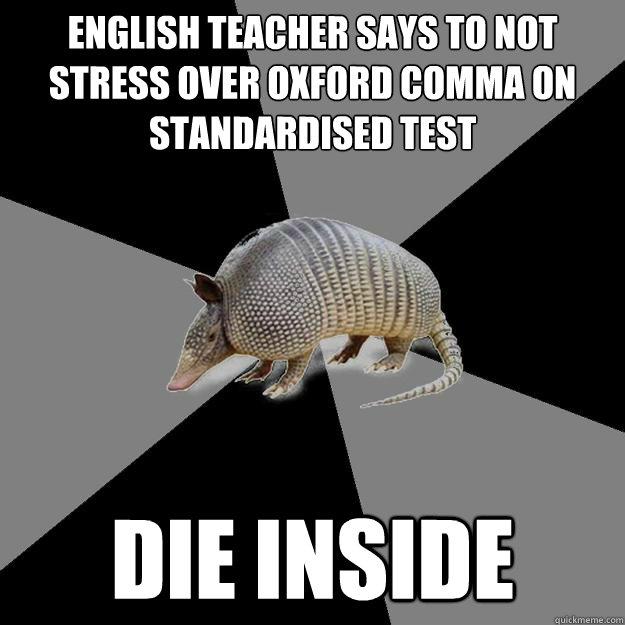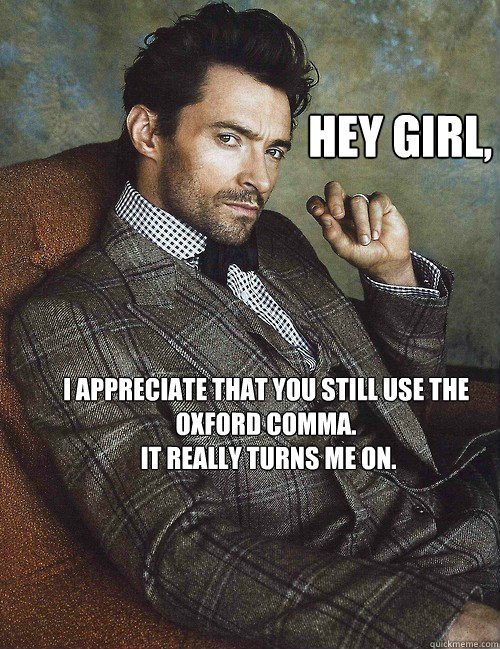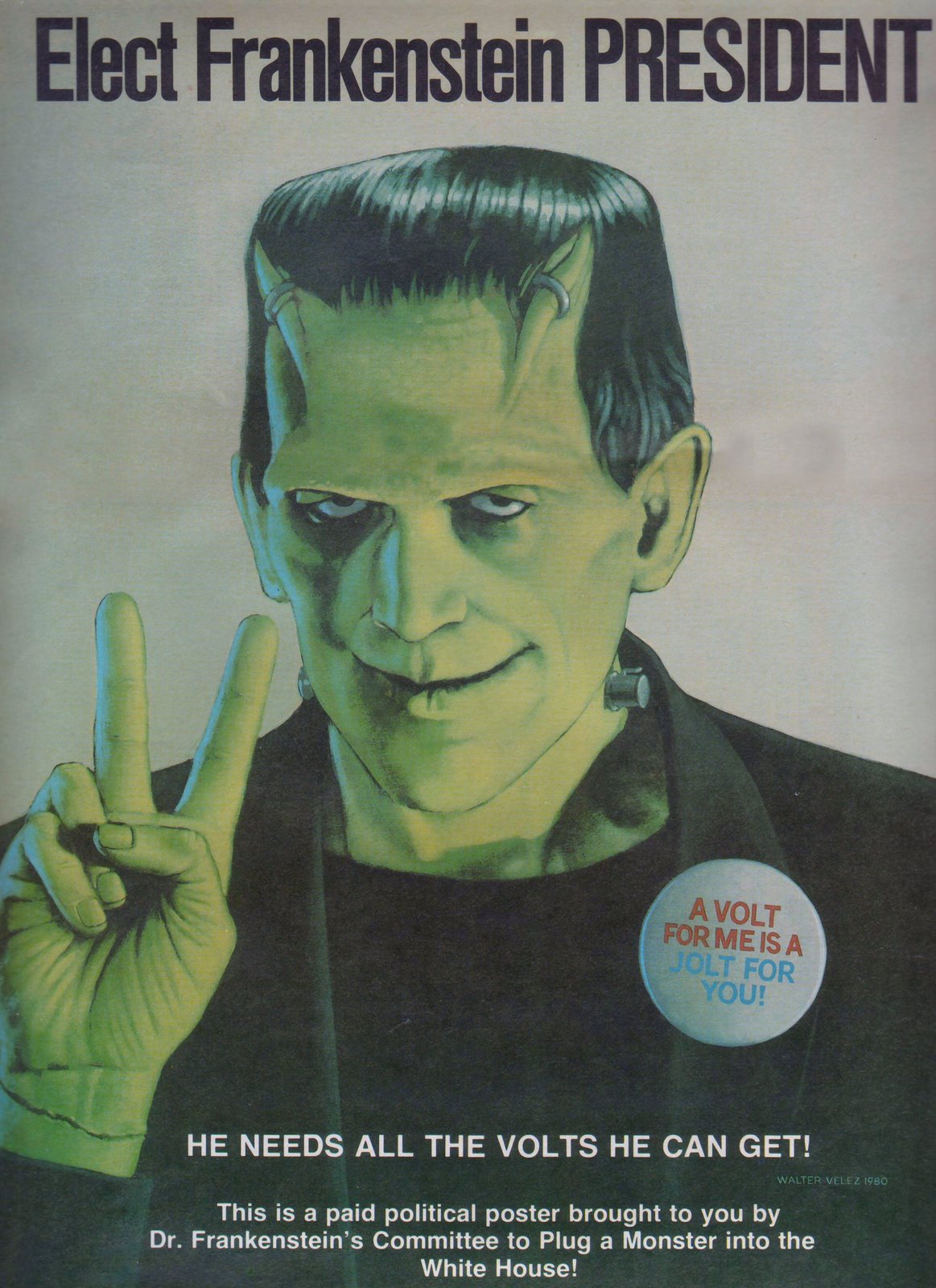My Deep Abiding Affection for the Oxford Comma
 |
| The Oxford Comma Prevents Misunderstandings |
I have a deep abiding affection for the Oxford comma because it circumvents a lot of unnecessary ambiguity. It's like my favorite piece of punctuation. I'm an English major, so I'm allowed to have a favorite piece of punctuation without being weird. My second favorite piece of punctuation is the upside down question mark, which is used in Spanish and some other languages at the beginning of a sentence that is a question. That way, you know right away that the sentence is a question. I think it's something that we should think about adopting in English, but I digress. Let me give you a little history of the Oxford comma. It was created by the grammar police in the 4th century, back in the days when all the nouns and adjectives ran around wrecking havoc, causing wars, and taking off their pants. The grammar police sat down and was like 'okay, we need to create some rules of punctuation because we're not nudists here'. The Oxford comma was created to be sort of like the FBI of grammar law enforcement; it's the heavy artillery.
 The Oxford comma, however, is a highly controversial. Like, I think it's probably the most controversial piece of punctuation ever, which, compared to the upside down question mark and the ellipses is saying something. See the problem is that some people think that the Oxford comma is not necessary. Crazy, right? But for some, incomprehensible reason a lot of English teachers say that it's optional.
The Oxford comma, however, is a highly controversial. Like, I think it's probably the most controversial piece of punctuation ever, which, compared to the upside down question mark and the ellipses is saying something. See the problem is that some people think that the Oxford comma is not necessary. Crazy, right? But for some, incomprehensible reason a lot of English teachers say that it's optional.Like, tell me if this sounds familiar: you're in second grade and your teacher is explaining that, when writing a list with two or more items, you need a comma before each item, but not before the and. The comma before the 'and' is optional. You can do whatever you want, as long as your consistent. Why don't we make speeding optional? You can drive at whatever speed you want as long as your consistent. 90 mph in a school zone? Fantastic! Why stop there? Why not make garbage cans optional? Just throw your trash where ever you want. Drivers licenses should be optional. It really is unfair that 12-year-olds can't drive. Pants could be optional. I know that we would all feel more comfortable without them.

Grammar is important! It is proper punctuation that separates us from the animals! Like, without the Oxford comma, we might as well be pant-less people making snow angels in the garbage! That sounds like a good life. The optional Oxford comma is the second biggest lie that your elementary school will ever tell you. News flash, you won't need cursive later in life.
Innocent children are being corrupted to believe that precision of language is not important. Isn't that what good writing is all about? Good writers Say exactly what they mean as precisely as possible. I mean, the point of written language is to convey information. What good is that if your writing is ambiguous?
Some people make the argument that the Oxford comma can cause ambiguity and, this is sometimes the case. But what I say is that if you still have ambiguity in your sentence, even with an Oxford comma, then you didn't write a very good sentence. There are very few situations in which a lack of an Oxford comma would clear up ambiguity. Normally, if it's ambiguous with an Oxford comma, it's ambiguous without. Of course, you have to use your judgement, but I think I have disregarded the Oxford comma for reasons of ambiguity perhaps three times in my life. It's not a very common situation.
 |
| Save the English Language. |
Meanwhile, there are college students running around out there who think that 'great' is spelled 'gr8'. Something needs to give! If you start telling kids that it's okay to ignore the Oxford comma, pretty soon you'll be telling them that it's okay to use '2' instead of 'to' and 'u' instead of 'you' in essays and papers! That's not okay! Don't give into peer pressure, use proper grammar!
Save the English language.
Just sayin'




Comments
Post a Comment